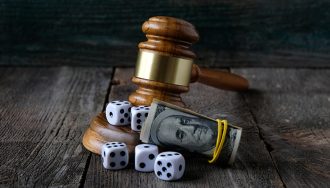
 Jerry SmithFebruary 28, 2025Read More
Jerry SmithFebruary 28, 2025Read More New Online Casino Bill
New Online Casino Bill
Last year, Indiana placed a moratorium on online casino bills after former representative Sean Eberhart faced corruption charges for receiving compensation in exchange for pushing gaming bills. However, the discussion has restarted with a new bill regulating online casinos and lotteries. Check out this article to learn more about this bill.
Indiana has had a long history of legalizing gambling. While the lottery was legalized in 1988, it took until 1993 for land-based and riverboat casinos to be approved. That was preceded by a lengthy period of bills being proposed and typically failing at the Senate. Since their legalization, 14 state casinos, including two racinos, were established.
Meanwhile, it took until 2007 for the first tribal casino to be opened in Indiana. To protect land-based casinos, online gambling would be banned in 2005 and partially repealed in 2019 when online sports betting was legalized. That meant there was hope that online casinos would also become available.
It taints the Statehouse. It diminishes the confidence that people have in the integrity of the Statehouse. It causes an awful lot of problems, and it makes it particularly difficult to engage in that kind of policy.
-Rodric Bray, Senate President
Unfortunately, efforts to legalize online casinos were put on hold throughout 2024. That was due to former representative Sean Eberhart pleading guilty to federal corruption charges. He had been bribed with a $350,000 salary to push the bill to legalize sports betting. The reveal put a stop to further discussions.
The current bill proposed by Representative Ethan Manning would legalize both online casinos and online lotteries. According to HB1432, the Indiana Gaming Commission would be the primary authority regulating online casinos. All state casinos and racetracks can apply for a license, which would cost $500,000 upfront and allow them to have up to three skins.
During its first year, the law would apply a 26% flat tax and establish a tiered structure. The tiers are based on the operator’s adjusted gross revenue for the previous fiscal year. Here are the currently proposed tiers:
Some other provisions include requiring live dealer studios to be based in the state. The Indiana Responsible Gambling and Problem Gambling Services Program would also be established to protect players. The IGC will provide it with $500,000 a year and operators will be billed for any responsible gambling costs.
Meanwhile, the Indiana Lottery Commission will regulate all online lotteries, which include draw and instant games. Pull tabs will also be legalized in Class II establishments, and players can use licensed lottery couriers. If the bill passes, it would significantly expand Indiana’s Gaming options.
Despite this, there are still some challenges remaining for the bill. For one, the corruption scandal will likely make legislators weary of approving future gaming bills. However, the biggest issue will likely be potential cannibalization. According to a fiscal impact report from the Indiana Legislative Services Agency, new online gaming revenue can cut up to 30% from existing casino revenue.
The fiscal analysis on the bill was horrible and made collaboration pretty hard.
-Senator Jon Ford
The fear of cannibalization is why Rep. Manning’s bill failed in 2023. However, Senator Jon Ford claims the report is biased. It is based on a 2011 study by the UNLV Gaming Research & Review Journal when online casinos were unavailable in the US. Meanwhile, Spectrum Gaming Group released a report in 2022 that found little risk of cannibalization.
The bill will have its first hearing on January 21st. While some issues remain, there is hope Indiana will be able to legalize online casinos. Seven of the land-based casinos in the Casino Association of Indiana support the efforts for online casinos, with Rep. Manning and Sen. Ford pushing for their success. We hope the bill will pass both the House and Senate.

 Jerry SmithFebruary 28, 2025Read More
Jerry SmithFebruary 28, 2025Read More
 Jane ShawFebruary 26, 2025Read More
Jane ShawFebruary 26, 2025Read More
 Jerry SmithFebruary 24, 2025Read More
Jerry SmithFebruary 24, 2025Read More
 Jane ShawFebruary 21, 2025Read More
Jane ShawFebruary 21, 2025Read More